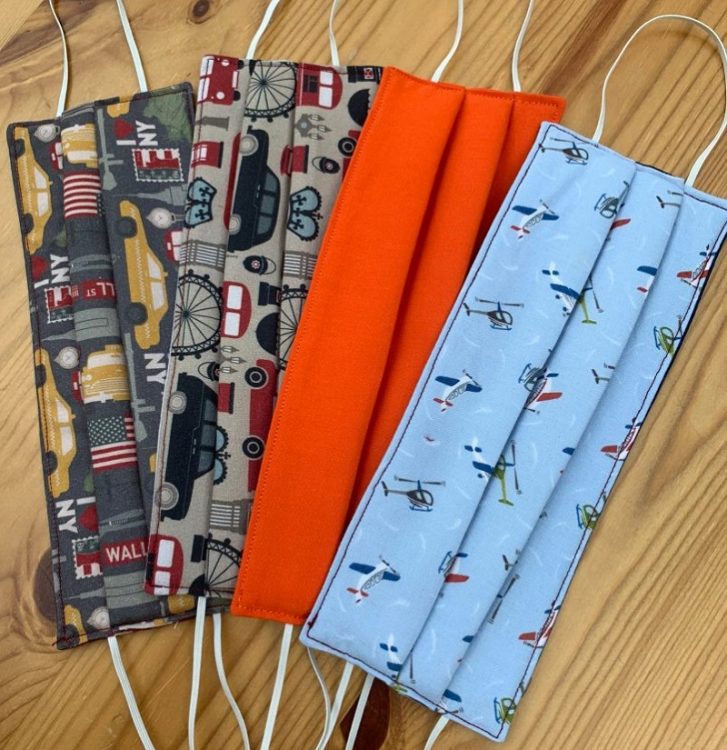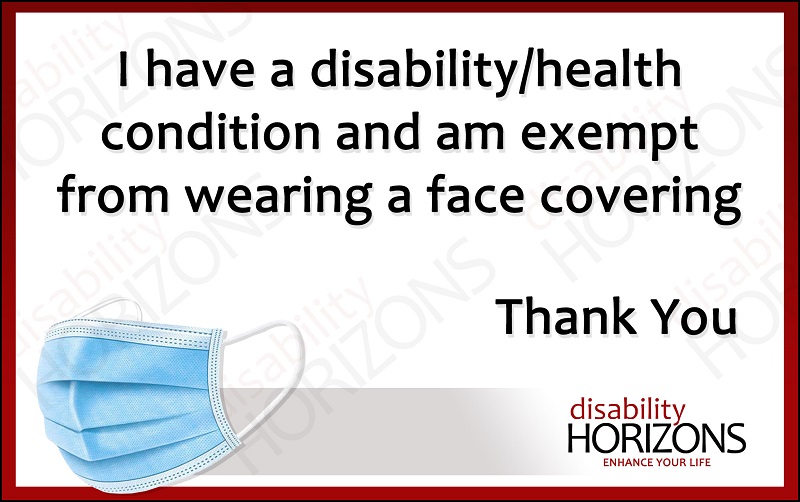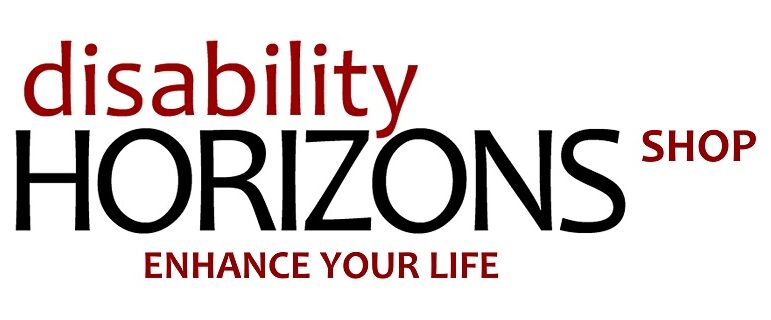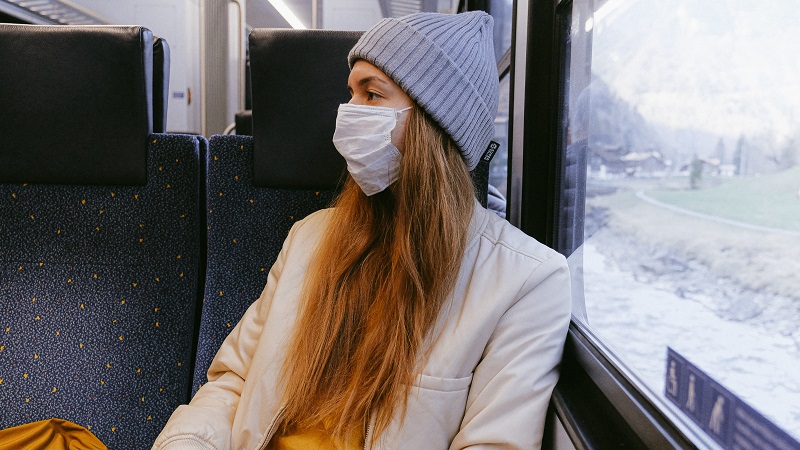In England and Scotland, everyone is required to wear a face maks or covering when using public transport. If you don’t, you won’t be able to travel and you might be fined £100, or £50 if you pay within 14 days.
However, in certain circumstances, disabled people and those with health conditions are exempt from wearing one.
Read on for more information, and head to the Disability Horizons Shop to buy our face mask exemption card so that you aren’t refused travel.
Face masks: the different types
There are a few different types of face masks or coverings:
- Surgical/medical masks – these disposables masks are usually made from three layers of material. They help to stop large droplets infected with Covid-19 from spreading, for example, if they are coughed or sneezed out by the wearer. They also help to stop droplets from others getting to the wearer’s mouth and nose.
- Filter face masks – these offer additional protection by filtering out smaller droplets for both the wearer and others (depending on the type of filter).
- Face shield and visor – plastic shields and visors either cover the entire face or top of it, stopping large droplets reaching the wearer. They can be worn with other types of masks for added protection.
- General or fabric face coverings – made from a range of different fabrics, these also stop the spread of large droplets, protecting others from Covid-19 if the wearer has it – more on this below. These are the type the public is being told to wear on public transport.
Read our full guide to personal protective equipment explained (PPE) to find out more about the different types of face masks.
Head to the Disability Horizons Shop to buy PPE, including face masks, plastic gloves, aprons and face shields.
Face coverings
Face masks or coverings, also called general, cloth or fabric coverings, can be bought or made at home.
The most effective types have three layers of fabric – an absorbent layer on the inside, a middle layer that filters and a top layer that is water-proof.
They come in a range of patterns and colours, and can be made at home from old clothing. You can also simply use a scarf or balaclava, as long as it fits snuggly around your nose and mouth.
Although they limit the spread of droplets coughed or sneezed out by the person wearing one, there is little evidence to suggest that they protect the wearer.
The Government recommends that the general public wears these types of masks on public transport so that others are reserved for health workers.
You can find out more about these types of coverings and what the Government recommends in our article on PPE explained.

You can buy these reusable face coverings in a variety of colours and patterns on the Disability Horizons Shop.
Face masks rules
From 15th June 2020, in England, it became compulsory to wear a face mask or covering on public transport, including busses, trains, aircrafts and ferries. This is now also the case in Scotland as of today (22nd June).
If you’re caught without a face mask, you’ll be denied access to public transport and possibly given a fine of £100 (£50 if paid within 14 days).
Face mask exemption on public transport
These rules don’t apply to children under the age of 11 and disabled people or those with health conditions when there is a ‘reasonable excuse‘ not to. This includes:
- where you cannot put on, wear, or remove a face covering:
- without severe distress
- because of any physical or mental illness or impairment, or disability (within the meaning of section 6 of the Equality Act 2010)
- where you are travelling with, or providing assistance to, another person who relies on lip-reading to communicate
- to eat or drink where it is reasonably necessary to do so
- where you have to remove your face covering to take medication
To put this into context, exemptions apply if you have a disability or condition that would make it very difficult to wear a face covering.
For example, if you have respiratory condition, such as chronic obstructive pulmonary disease, you may find it too difficult to breathe through a face covering.
If you have a learning difficulty, sensory processing disorder or neurodivergent condition, wearing a mask could be too overwhelming.
If you have communication difficulties, speech impairment or find it hard to express yourself with a mask on, especially if you are non-verbal, a mask would be difficult.
Mask exemptions also apply if you need to communicate with a deaf person who lip-reads.
This is list is not exhaustive and there will be many other disabilities, including invisible ones, that would make wearing a mask very difficult.
Other exemptions apply to some transport workers and other specific situations.
The government has also strongly advised that people wear face coverings in enclosed spaces, such as shops, where social distancing can’t be achieved, and when visiting the hospital. Our guide to PPE explained has more details.
Face mask exemption card

Government guidelines listed above mean that you can now self-certify as being exempt.
To ensure that you don’t get fined or denied travel when you’re genuinely exempt for medical reasons, we’ve created an exemption card.
Our mask exemption card comes on a lanyard or badge clip. It is a durable, portable pass that you can wear around your neck or pinned to your coat or top while travelling.
It provides drivers and staff with immediate and simple-to-understand information regarding your mask exemption.
The bright red lanyard has ‘MASK EXEMPT’ written in white capital letters so it is easy to see. The credit card-sized ID badge further explains your mask exemption as being due to a “disability/health condition”. Both can be seen and read at a safe distance.
There is also the option to purchase the ID card with a badge clip instead of a lanyard, which can be worn on shirts, tops or coats.
The pocked-sized design of the ID, badge clip and lanyard means it can be stored in your coat or bag making it easy to access and put around your neck or pin to you while travelling.
The badge costs just £2.95, the lanyard £3.95 and for it is £4.95 for both.
Head to the Disability Horizons Shop now to buy your face mask exemption card on a lanyard or as a badge to make sure you’re covered when you travel.
By Disability Horizons
More on Disability Horizons…
- PPE: all you need to know and how to buy it
- Coronavirus: how to keep safe if you use carers and PAs
- Coronavirus shopping safely: how to get your food if you’re disabled
- How to self-isolate or shield and get help: a practical guide if you’re disabled
The post Face mask exemptions: how to ensure you don’t get fined if you’re exempt appeared first on Disability Horizons.

